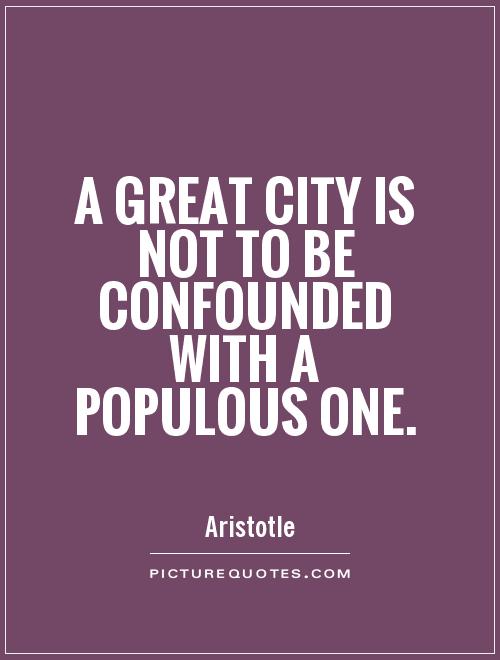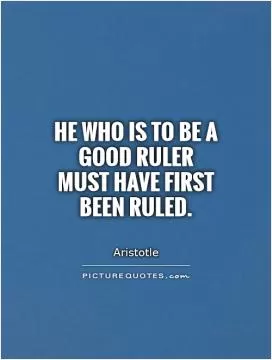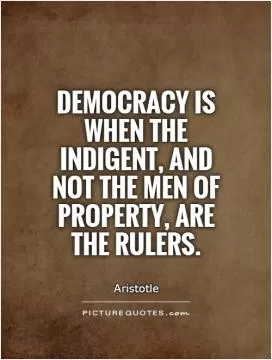A great city is not to be confounded with a populous one

A great city is not to be confounded with a populous one
In his work "Politics," Aristotle discusses the concept of a great city and distinguishes it from a populous one. He argues that a great city is not simply defined by its size or population, but rather by the quality of its citizens and the virtues that they possess. Aristotle believed that a truly great city is one that is governed by a virtuous and just ruler, where the citizens are educated, moral, and actively engaged in the political life of the community.Aristotle's words on this topic are particularly relevant in today's world, where many cities are judged solely based on their population size or economic output. In the age of globalization and urbanization, there is a tendency to equate greatness with size and wealth, rather than with the moral and intellectual qualities of the citizens who inhabit a city.
Aristotle's emphasis on the importance of virtue and moral character in a great city is a reminder that true greatness is not measured by material wealth or power, but by the values and principles that guide the actions of its inhabitants. A city may be populous and wealthy, but if its citizens lack virtue and moral integrity, it cannot be considered truly great.
In today's world, there are many examples of cities that are populous and economically prosperous, but are plagued by corruption, inequality, and social unrest. These cities may have impressive skylines and bustling economies, but they lack the essential qualities that Aristotle believed were necessary for true greatness.
On the other hand, there are cities that may be smaller in size and population, but are known for their strong sense of community, civic engagement, and commitment to social justice. These cities may not have the same level of economic output as their larger counterparts, but they are considered great in the eyes of Aristotle because of the virtues and values that define their citizens.












 Friendship Quotes
Friendship Quotes Love Quotes
Love Quotes Life Quotes
Life Quotes Funny Quotes
Funny Quotes Motivational Quotes
Motivational Quotes Inspirational Quotes
Inspirational Quotes